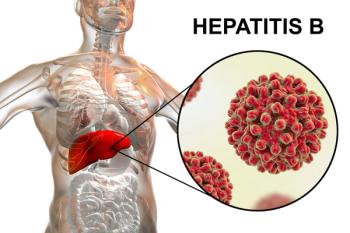
Examining the Link Between Infections and Cognitive Decline in Older Adults
Both acute and chronic infection can increase the risk of cognitive decline and dementia in older adults.
Results of a review published in the journal Neurological Sciences1 have indicated that acute or chronic infections can increase the risk of cognitive decline and dementia in older adults when combined with certain risk factors.
Virgilio Hernandez‐Ruiz, MD, of the Nacional de Ciencias Médicas Y Nutrición Salvador Zubirán, in Mexico City, Mexico and colleagues conducted the review. Study authors searched MEDLINE/PubMed to find articles related to cognitive decline in older adults following infections. The review adds to expanding data that infectious diseases can alter cognitive ability.
Older Adults Are More Susceptible to Infectious Diseases
According to researchers, there are several reasons why older adults are more susceptible to infections. The first is immunosenescence, which is the natural decline of the immune system due to aging. These changes cause older adults to be more vulnerable to illness. Additionally, older adults have more comorbidities, such as chronic kidney disease (CKD), cardiovascular disease (CVD), and diabetes, which increase the risk of infection due to inflammation. This population often needs more medical procedures, which expose them to infection more frequently.. Similarly, older adults in congregate care settings have higher infection exposure and infection rates.
Researchers also noted that some individuals have a cumulative burden of infectious diseases acquired throughout their lives, such as herpes simplex viruses (HSV), hepatitis, HIV, and other pathogens. More infections result in more frequent inflammation, which is thought to be attributed to cognitive decline, especially when combined with comorbidities.1
Examples of Specific Pathogens and their Effects on Cognition
Researchers noted that many more pathogens can cause decline than are included in the review, such as syphilis, dengue, and Zika. They specifically examined the family of HSV, periodontitis, HIV, Helicobacter pylori, hepatitis C, Lyme borreliosis, and emerging viruses such as SARS-Cov-2 for the study.
These infections, the researchers noted, have systemic involvement. They noted that HIV is the pathogen with the most evidence of negative cognitive outcomes.
“Almost from the beginning of the HIV pandemic, neurocognitive manifestations of the disease were identified, and eventually the term HIV-associated neurocognitive disorder (HAND) was coined,” study authors said.1 HSV has numerous studies that emphasizes neurotropism, the authors said, pointing to examples such as a study that shows adults with high anti-HSV 1 immunoglobulin G (IgG) titers more frequently have early signs of Alzheimer’s in neuroimaging. Evidence is mounting that COVID-19 also causes neurocognitive decline.
“Frequently reported persistent manifestations of COVID-19 include cognitive complaints, with attention difficulties (estimated frequency 27%) and memory loss (estimated frequency 16%) being the most frequently reported,” the authors wrote.1 They added that loss of smell and taste are thought to predict future cognitive impairment.
How Pathogens Cause Cognitive Decline
Researchers examined the mechanisms of infection-derived cognitive decline. These include “systemic and neurologic inflammation, vascular damage, direct damage (neurotropism), hyperphosphorylation of tau protein, and abnormal aggregation of peptides and proteins such as beta-amyloid, and alpha-synuclein,” researchers reported.1 The authors said animal-model and basic research studies have found that systemic inflammation causes damage to the vascular system, especially capillaries. In addition, severe infections can cause malfunctioning of the blood-brain barrier, which exposes the brain to pathogens and neurotoxic substances.
Vaccines Can Reduce the Risk of Cognitive Decline as People Age
Study authors said that in addition to reducing disease burden, vaccination can be protective against cognitive decline in older adults. They reported a growing amount of evidence on this topic, especially with dementia. They noted how various studies have shown decreased risk for dementia among older adults who had influenza, varicella zoster virus, and tetanus, diphtheria, and pertussis (Tdap) vaccinations. Researchers said that the findings may not be vaccine-specific, but “rather a non-specific immune response to the vaccines, or that they represent general immune conditioning/training over time.”1 Pharmacists are uniquely positioned to combat cognitive decline in older adults by the simple act of vaccination.
Researchers said the collection of review studies show that “numerous acute and chronic infectious diseases share mechanisms that, when added to specific risk factors frequently found in older persons, contribute to considerably increase the risk of cognitive outcomes such as cognitive decline and dementia.”1 They added that this information will help clarify the connection between infectious disease and cognitive decline and encourage further investigation into the subject.
Reference
1. Hernandez-Ruiz V, Letenneur L, Fülöp T, et al. Infectious diseases and cognition: do we have to worry?. Neurol Sci. 2022;43(11):6215-6224. doi:10.1007/s10072-022-06280-9
Newsletter
Pharmacy practice is always changing. Stay ahead of the curve with the Drug Topics newsletter and get the latest drug information, industry trends, and patient care tips.























